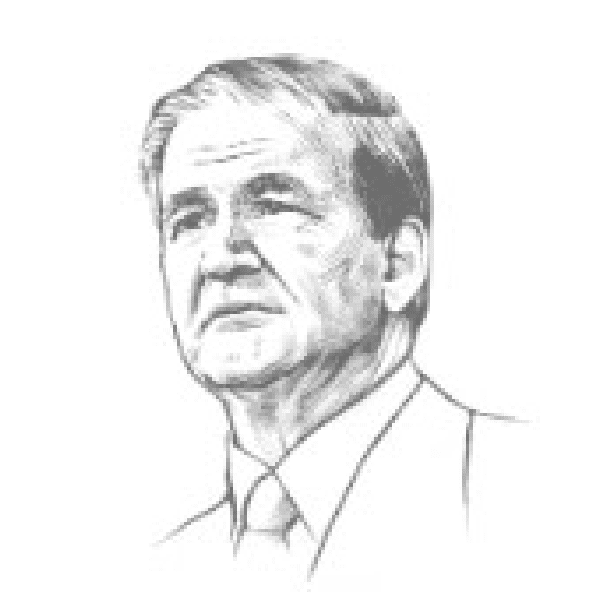The Good Neocon
In writing a book on the new era America is entering after the Iraqi debacle, I revisited the various contributions to a post-Cold War symposium organized by Owen Harries of The National Interest.
Then, before the crack-up of conservatism, the most respected foreign-policy voice of neoconservatism was that of Jeane Kirkpatrick. A Humphrey Democrat who had moved rightward since school days at Stephens and Barnard, Kirkpatrick had been Reagan’s ambassador to the UN. The Gipper was deeply fond of her. At the Republican Convention of 1984, Jeane had coined two phrases that have lived on: “San Francisco Democrats” and “They always blame America first!”
Her essay, “A Normal Country in a Normal Time,” was published in the fall 1990 issue of TNI. Jeane likely finished it after the Berlin Wall fell but before Saddam’s August invasion of Kuwait.
Though her specialty was foreign policy, she began by declaring, “America’s purposes are mainly domestic.”
“A good society is defined not by its foreign policy but by its internal qualities. … Foreign policy becomes a major aspect of a society only if its government is expansionist, imperial, aggressive, or when it is threatened by aggression. One of the most important consequences of the half century of war and Cold War has been to give foreign affairs an unnatural importance.”
Kirkpatrick believed that foreign policy must now take a backseat: “The end of the Cold War frees time, attention and resources to American ends.”
In a frontal assault on today’s neoconservative dogmas about America having an historic mission to democratize mankind, Jeane noted that the only mention of foreign policy in the preamble to the Constitution is “provide for the common defense.”
“There is no mystical American ‘mission,’ or purpose to be ‘found’ independently of the U.S. Constitution. … There is no inherent or historical ‘imperative’ for the U.S. government to seek to achieve any other goal—however great—except as it is mandated by the Constitution or adopted by the people through elected officials.”
Bush’s doctrine of “world democratic revolution” and “ending tyranny on earth,” as it has not been ratified by an elected Congress, is without constitutional sanction. When Bush goes, it goes.
In those days, Charles Krauthammer was already burbling on about surrendering U.S. sovereignty to merge with Europe and Japan in a “super-sovereign” entity that would be “hegemonic in the world.” Jeane brought him up short: “[I]t is not America’s purpose to establish ‘universal dominance’… not even the universal dominance of democracy. … It is not within the United States’ power to democratize the world.”
Beware of elites who behave like some priestly class that alone has the knowledge, experience, and wisdom to guide foreign policy, she warned. “It has become more important than ever that the experts who conduct foreign policy on our behalf be subject to the direction and control of the people.”
Beware, too, of an “internationalism” that “looks at the world and asks what needs to be done—with little explicit concern for the national interest.”
America “should assume no new obligations in remote places,” she admonished. The United States “should negotiate rules which give U.S. products fair access to foreign markets and give foreign businesses no better than fair access to U.S. markets … to ensure that the patterns of trade competition do not undermine the United States’ technological and industrial base.”
“This is a government responsibility which cannot be ignored because of anxieties about an ‘industrial’ policy.”
Kirkpatrick was no Wall Street Journal free-trade fundamentalist. She was an economic nationalist.
As for the U.S. role in NATO, she wrote, “Neither can the U.S. be expected to sustain an expensive role in an alliance whose chief role is to diminish European fear of a resurgent Germany.”
“We should not spend American money protecting an affluent Japan …”
“Most of the international military obligations that we assumed were once important are now outdated. … It is time to give up the dubious benefits of superpower status and become again an usually successful, open American republic.” A republic, not an empire, the lady said.
In closing, she wrote, “The United States preformed heroically in a time when heroism was required; altruistically during the long years when freedom was endangered.
“The time when America should bear such unusual burdens is past. With the return of ‘normal’ times we can again become a normal nation.”
Had Bush II heeded her wise counsel, America would not be in the hellish mess it is in today. Jeane Kirkpatrick died in December at 80 years of age. Requiescat in pace.

Comments